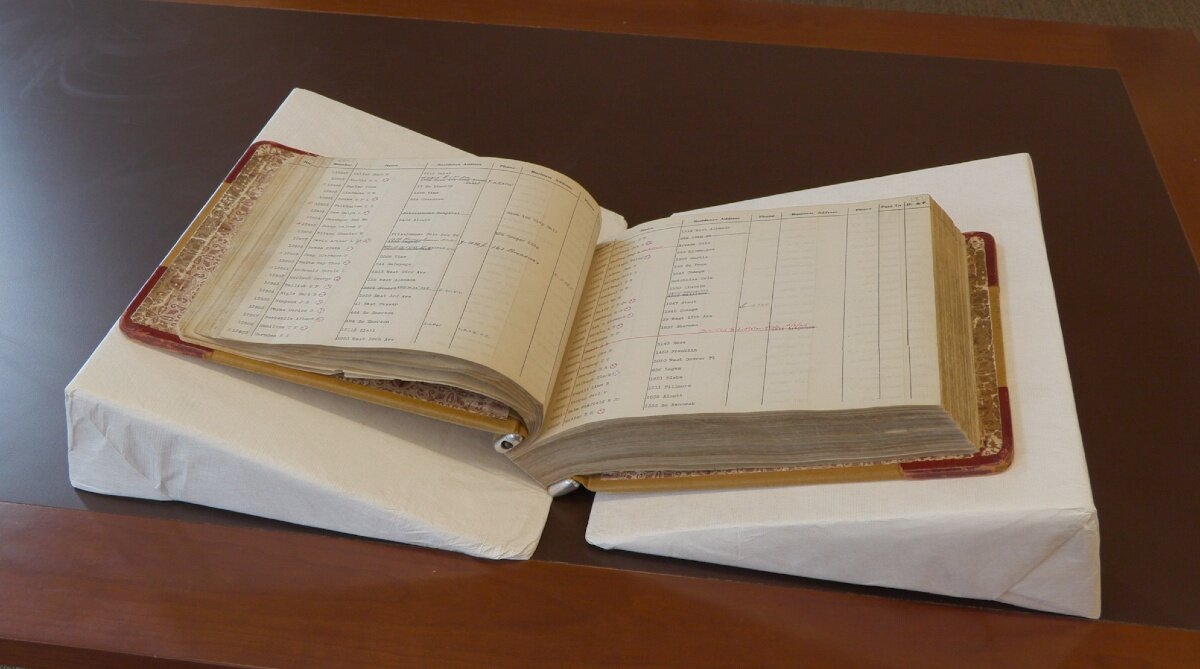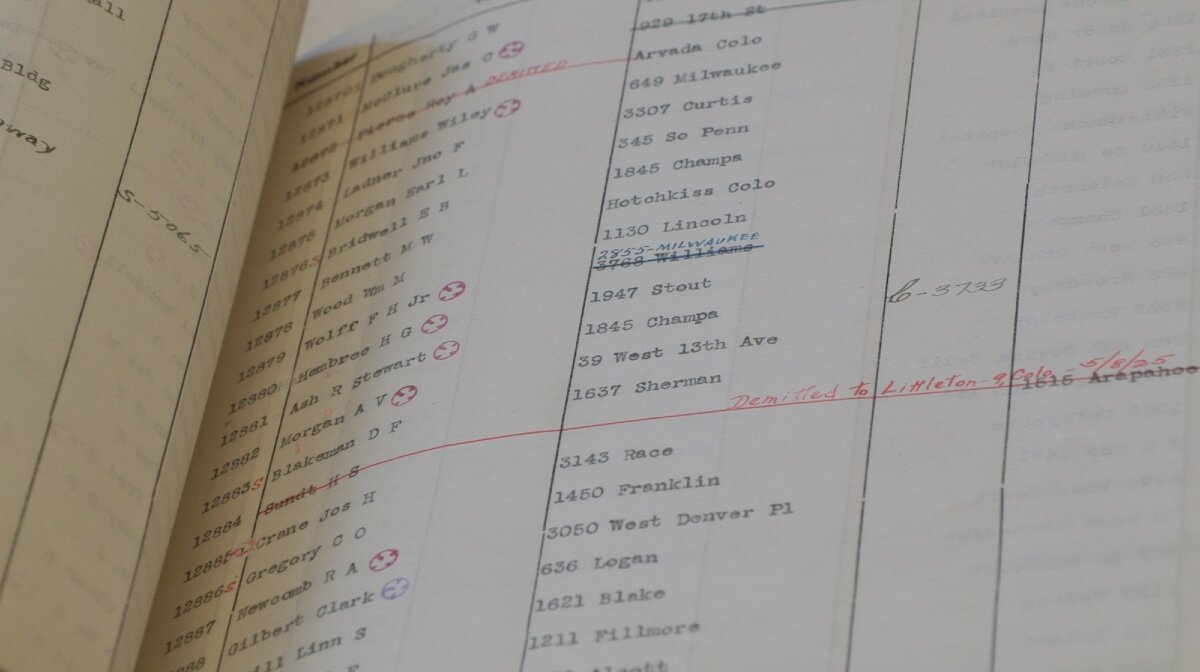Chilling interactive map shows 1920s Denver was rife with KKK members

DENVER — Names. Home and business addresses. Phone numbers. Dues payments. The neatly typed ledger entries march across row after row, page after page, their ordinariness belying their significance.
Almost a century ago, the Ku Klux Klan held sway in Denver, preaching racism, sectarianism and other forms of bigotry. At the KKK's peak in Colorado, its tens of thousands of members included a governor, a mayor, legislators, judges, business leaders and ministers.
And while Klan members in the 1920s paraded through Denver wearing the familiar pointy hoods that obscured their faces, the Klan's membership lists of names and addresses are evidence that those who pledged loyalty to the movement's vision of white supremacy felt no need to hide their identity.
Those names are on display in an extraordinary set of documents — more than 1,300 ledger pages — that History Colorado has made available online in a searchable PDF format.
The pages, from a pair of the KKK's membership books dating from about 1924 to 1926, contain nearly 30,000 entries. They have always been accessible to researchers, but History Colorado has now digitized them to make them more widely available.
"The ledgers are now the single largest archival item digitally available from History Colorado's collection," the organization said in its announcement of the digital release.
The Klan records can be viewed online or downloaded at this link.
Also available at the History Colorado website are additional resources on Colorado's Klan era and on resistance to it. And the organization plans online programs to enhance understanding of the state's Klan era. (See below.)

Dawn DiPrince, History Colorado’s chief operating officer, told Rocky Mountain PBS that the Klan project reflects her organization's belief that "history is really an important part of anti-racism work." By sharing information about past bigotry more widely, History Colorado hopes to help people "make connections" to explain systemic racism today, she said.
While the Klan members listed in the ledgers are no longer alive, DiPrince acknowledged that people scanning the records today may find the names of ancestors, or see the addresses of the homes where they now live.
"But we think that, for the greater good, people are going to be able to use this data, not to attack each other, but ... building our knowledge about what this means and who we are as a state," she said.
DiPrince said that History Colorado consulted many community advisors as it carefully devised ways to present the Klan records without causing undue "trauma" or seeming to present "a celebration of white supremacy."
One of the hard truths that researchers found as they reviewed the documents was that a handful of Klan members had connections to a History Colorado ancestor agency, she said. Other major local institutions are also listed in the ledgers, including the City of Denver, the Post Office, various banks and hospitals, The Denver Post, the University of Denver and the Chamber of Commerce.
"If you cannot confront and examine those histories, you can never move beyond them," DiPrince said. "They continue to infect and impose themselves. And we know that the only way we can move forward in an honest and equitable way is if we are able to unpack things like this ledger and (look at) its impact on our state's history."
More on the Klan in Colorado
"Colorado Experience: KKK" traces the sordid history of the KKK in Colorado and the impact they had on Catholics, Jews and African Americans in early 1920s, and the courageous individuals who fought against their establishment. Watch here.
[Related: How one woman grappled with racism after finding out her grandfather was in the KKK]

